keeping legacy alive
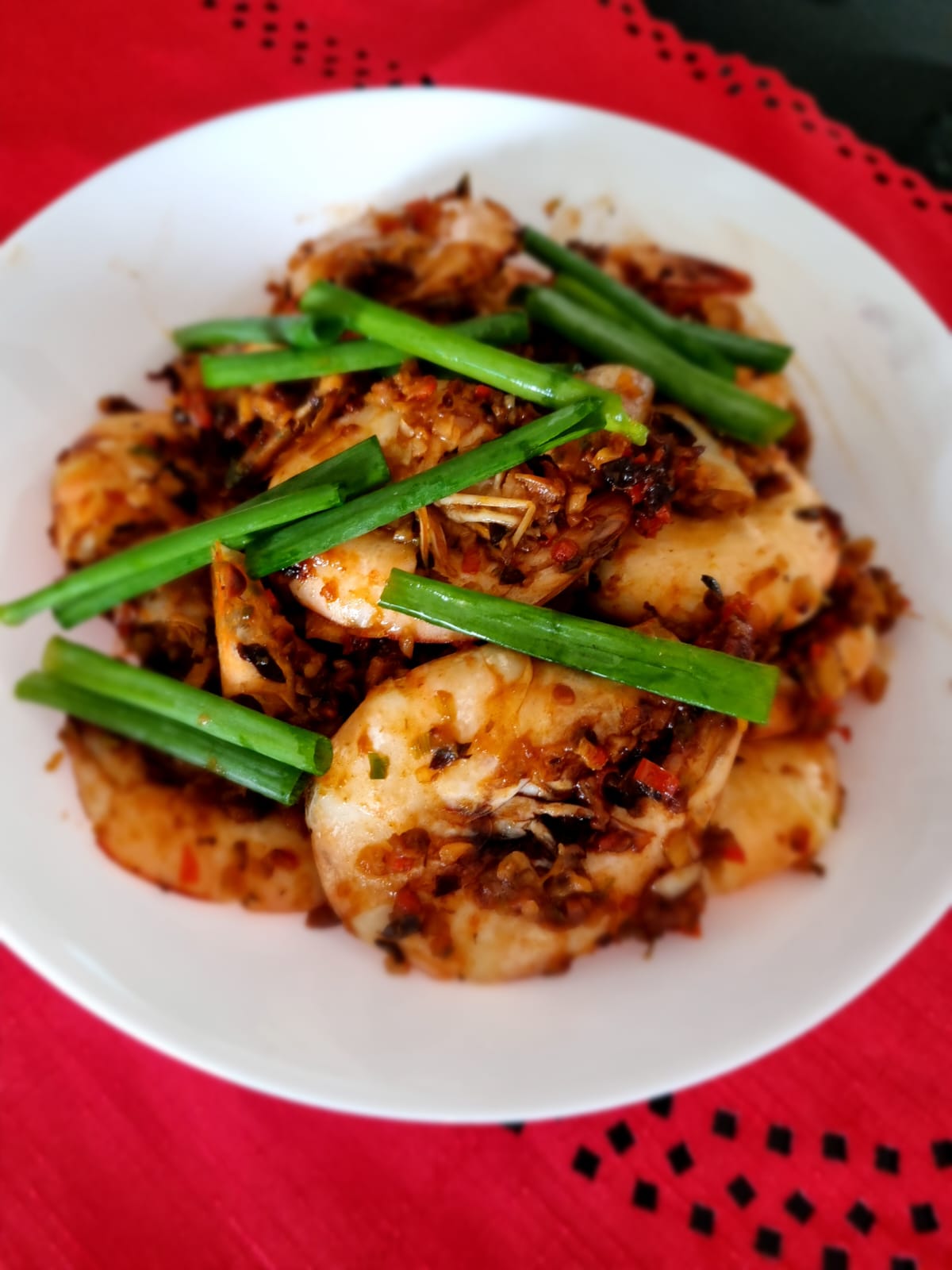
keeping legacy alive
Dad was not the richest man nor was he a pauper. When he passed on, he did not leave much tangible assets or mementos that we could remember him by. With seven kids to feed, his income was probably just sufficient to give us a decent childhood and send us to university which probably was the best legacy he left behind. But let me not be cliché here.
As dad was a travelling salesman, I don’t recall many special moments with him, unlike children nowadays who get to travel on vacation to far off places with their parents or where parents are much more involved in their children’s lives today, making unforgettable memories. Maybe there were just too many of us for him to pay attention to us individually.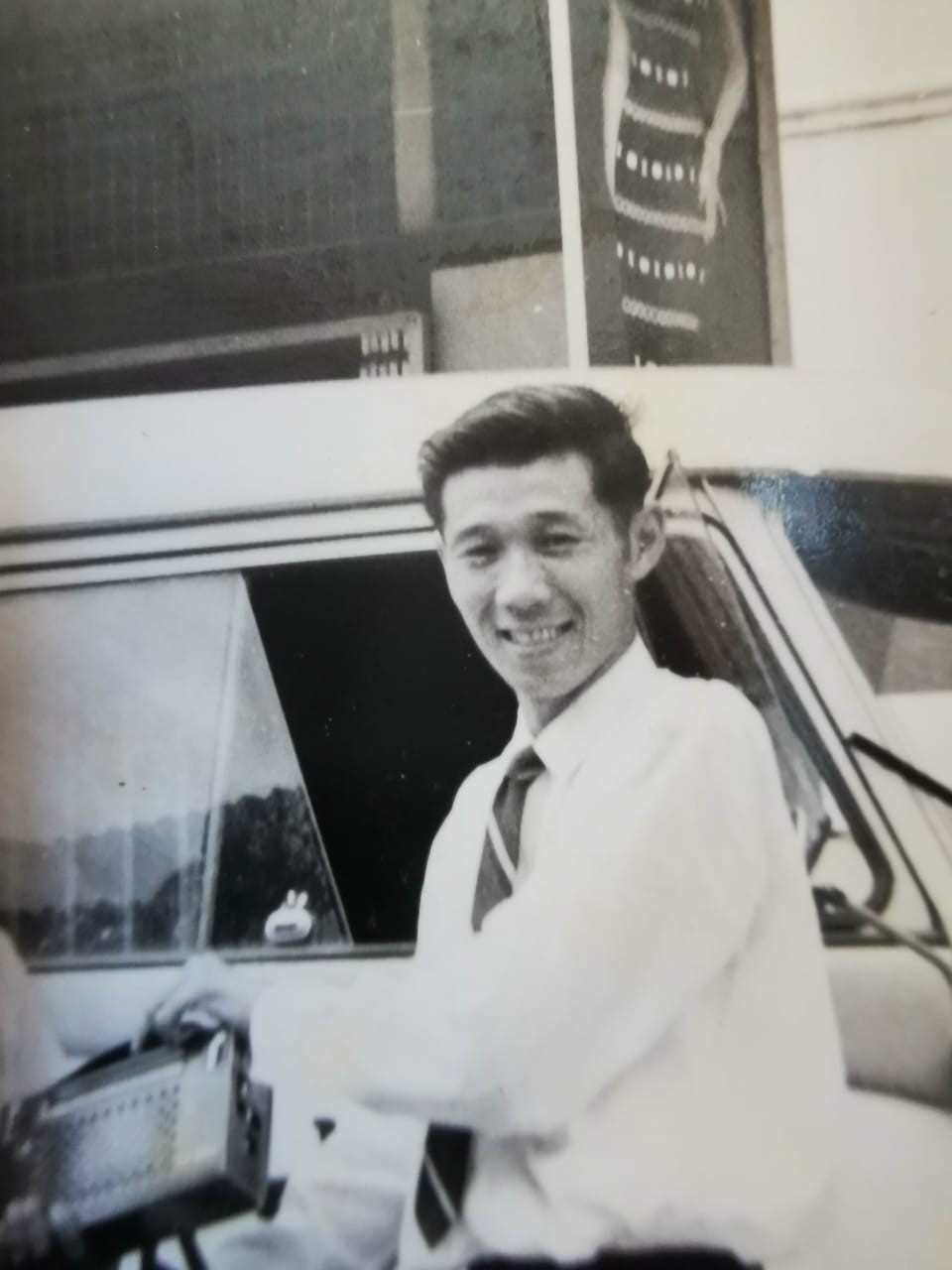
Dad in his younger days as a salesman
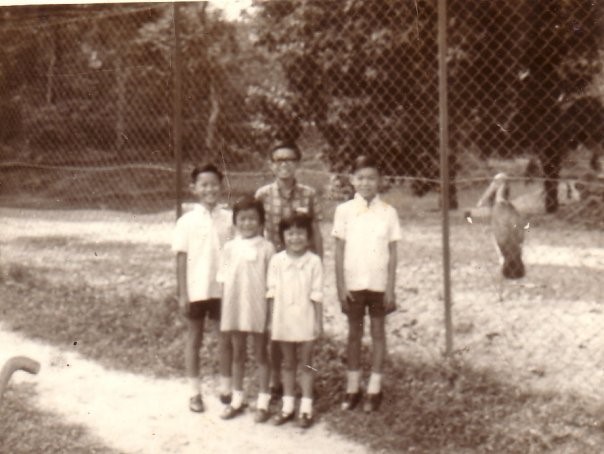
Photo with siblings taken when my two younger sisters were not born yet
Dad was busy trying to meet ends meet, having to meet his sales target. His basic salary was too low to feed the family and he had to depend on the sales commission. Over time, when more competitors came to the market, he had to face additional pressure and also office politics as people were trying to undercut each other or lure each other’s customers away. Despite all these, dad never failed to remember to buy home food whenever he was travelling to other towns in Perak. At the sound of his car horn, we would rush out to open the gate for his car to drive into the driveway while we peep earnestly through the car windows if he had brought anything back from outstation. It was mainly biscuits from where the towns were well known for in the 70’s and 80’s eg Kampar Chicken Biscuit and Telok Anson (now called Teluk Intan) “Heong Peang”.
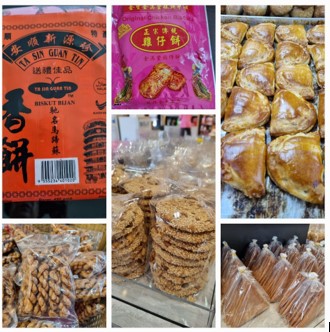
Some biscuits that dad would buy when travelling to other towns for work
Occasionally we could smell durians which he would buy from the roadside stalls along the trunk road when expressways were not built yet. There would also be rambutans, mangosteens and pomelos to feast on.
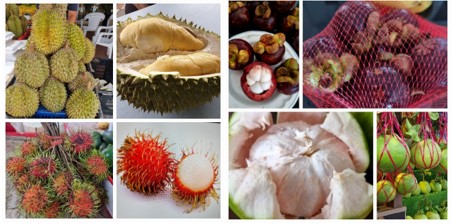
Variety of fruits that dad would buy when he was outstation
During the times when dad wasn’t travelling and not under too much pressure, he would feed all his children from a huge bowl filled with rice mixed with eggs. I don’t know how he cooked it but it tasted like raw eggs mixed directly into the steaming hot rice with some soya sauce. We would pretend to be rabbits and hop to him where he would feed us all from the same spoon. It was a simple meal but it tasted so good. I have tried preparing this same meal, but mine was not even close to how I remember it tasted when my dad made it. Perhaps it was one of those rare occasions where dad gave his full attention to us that this has stayed with me even after all these decades.
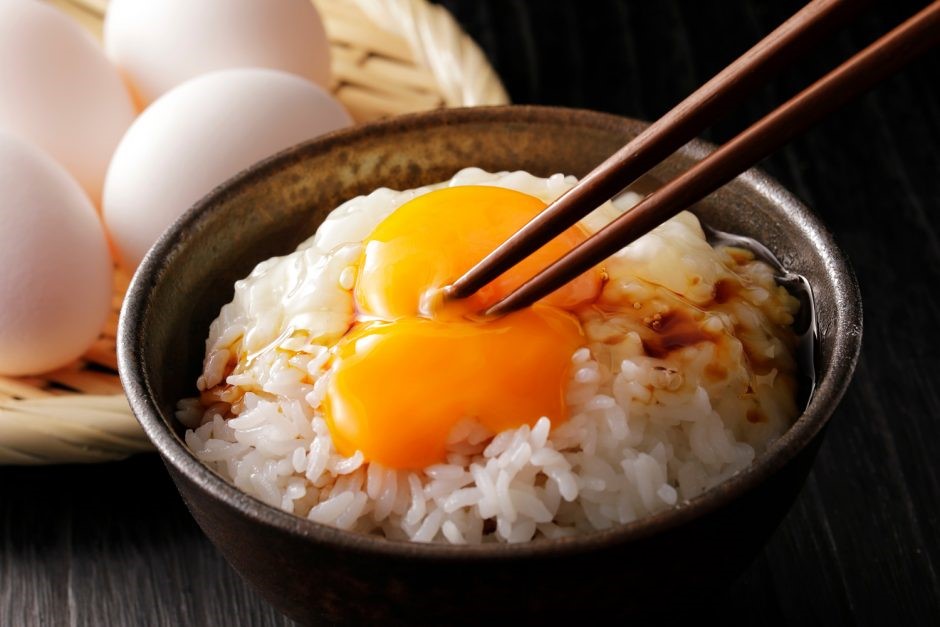
Eggs on Rice
(Photo Credit: Asian Inspirations)
Besides him feeding us, I don’t recall any similar moments with dad until I was a teenager. Like most parents, he always reminded us the importance of a good education as to him, it was a passport to getting a good job and better life. He himself only received secondary school education and had to learn some Japanese during the Japanese occupation in the 1940s. As he was able to speak some Japanese, it helped land him a sales job with a Japanese electronics and household firm. When I started dating as a teenager, he was worried. While he did not scold or forbid me from dating, his one remark was a turning point in my life. He said, “If you want to, I will allow you to get married now. But what are you going to eat? Can you just survive on love alone with no money to buy food and feed yourself?”. The thought of having no food to eat was scary enough for me to stop dating and I had my priorities reset.
For some reasons, memories of dad are always food related.
He would meet his friends at Ipoh old town almost daily to have his white coffee, egg custard and sponge cake. We have since acquired craving for the same and every trip home would see us there as the “must stop” place to eat.
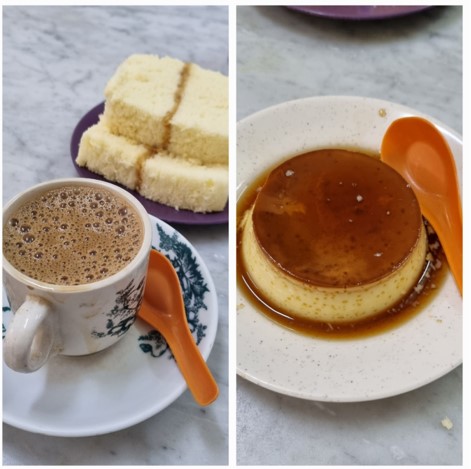
Dad’s favorite cup of old town white coffee, sponge cake and egg custard
On the first day of every Chinese New Year, dad would visit the market in the wee hours of the morning to buy home some vegetarian food. He would also get balloons for all of us, a treat which we only received once a year. We would know that it was time to wake up when dad blasted the Chinese New Year songs at full volume on the mini-compo when he reached home. It was a happy occasion and we would look forward to checking the “ang pow” (red packet with money) in our pajama pocket which dad had quietly put in when we were fast asleep the night before. While we happily tucked in to the long-awaited tins of homemade biscuits, Dad would have his vegetarian food, abstaining from meat and eggs for that day. He never told us why and we never asked.
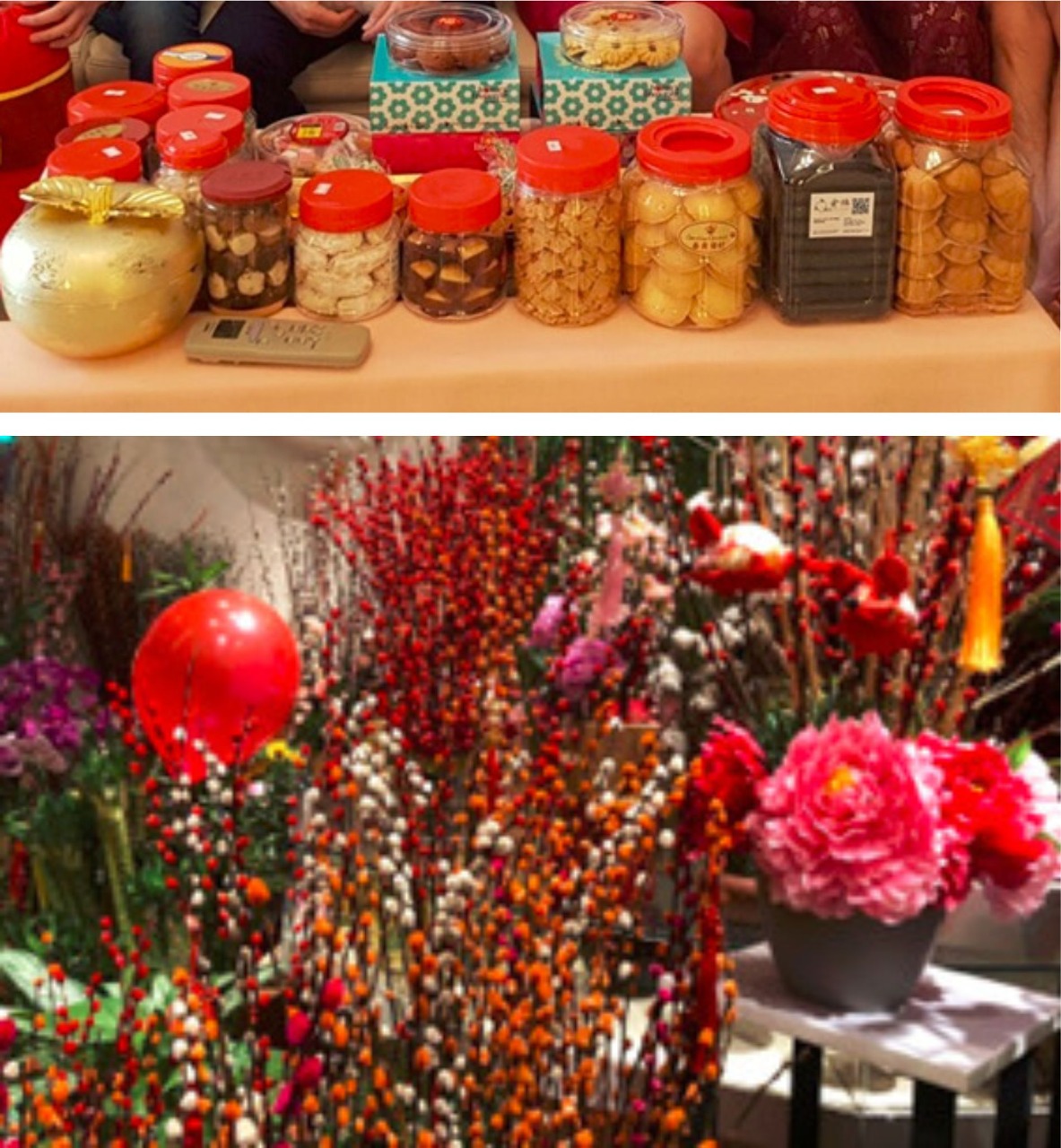
Chinese New Year cookies & decorations in today's time.
I have never bothered to find out the reason all these years but it has become a tradition that I started with my family twenty-five years ago when dad passed away. Similarly, my kids would have to wake up to the Chinese New Year songs on the first day of Chinese New Year up till today. They would joke and laugh about it as they deemed the songs uncultured over the vegetarian breakfast which I would wake up early to prepare as all the vegetarian stalls would usually be closed on that day. The kids would beg with me every year not to play those songs to wake them up which unfortunately continues to fall on deaf ears. Just like us when we were young, they have never asked why were we having vegetarian breakfast which is only served once a year. And I have never explained.
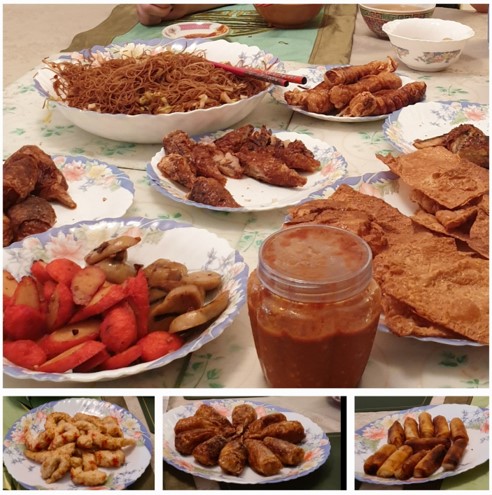
Vegetarian breakfast on the first day of Chinese New Year
An excerpt from an article from Yannie Chan (Jan 26 2021, The Hong Kong Loop) explained the reason: The tradition of going meatless on the first day of CNY originates from Buddhism. Many believers eat vegetarian on the first day and fifteenth day of every lunar month, in order to pay respects to Buddha and to accumulate good karma. Some believe that doing so on the first day of the first lunar month earns you even more good karma, because everyone else would be feasting on meats and seafood.
Dad was a Catholic and so are we. There is no reason for us to believe in karma but if that was the reason why dad went meatless on that day, we will continue to observe and keep this tradition.
When the company wanted dad to relocate to Kuala Lumpur in his late 40s, he decided to retire as taking on the offer means either uprooting the family or be away from his family. He took on the responsibility of doing the marketing and preparing the family’s meals which I would occasionally help out. We ate simple but soup was a must every day. My favorite was the lotus roots with peanut soup which is now the default soup for our “chor yee” (second day of Chinese New Year) “hoi lin” (opening of the year) meal. I have noticed that my son in law seems to like this soup as he was helping himself to my daughter’s (his wife) half drank bowl after he had finished his, at his first “hoi lin” meal with us this year.
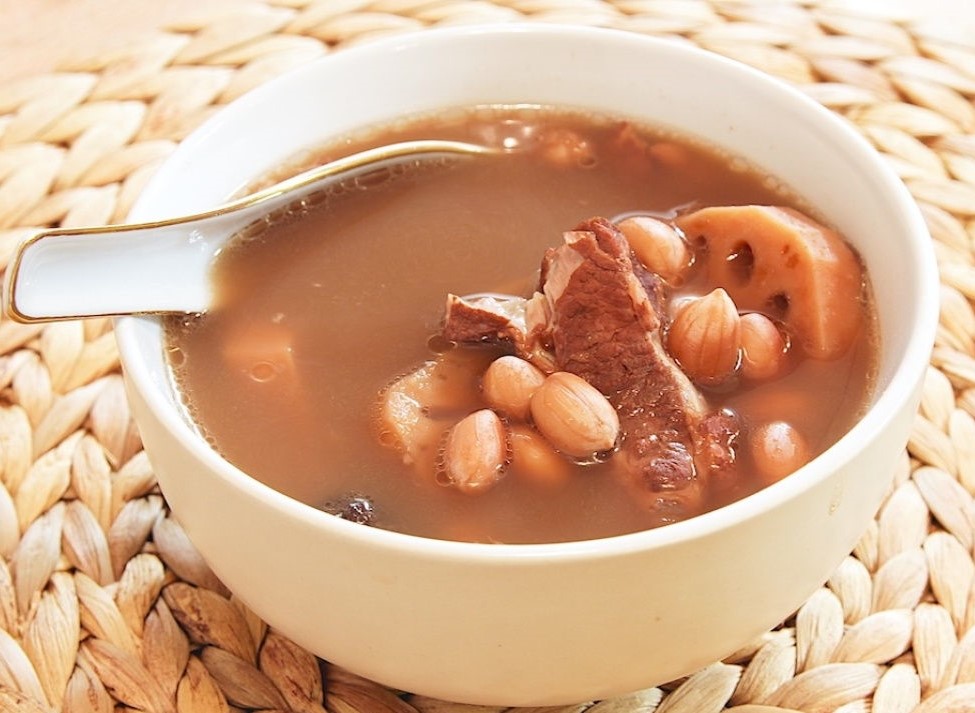
Lotus Roots with Peanut Soup
(Photo Credit: nyonya cooking/Grace)
As most of us were no longer living in Ipoh and working in other cities, we always look forward to returning home for Chinese New Year. Some of us could not make it in time for reunion dinner, hence ‘hoi lin” was a meal that the family could gather and eat together. While dad would be busy in the kitchen with mum; my siblings and I would be playing mahjong. He would occasionally sneak out for a while to watch us play. To our horror, he would reveal loudly and openly what cards/tiles each of us were waiting for. Dad was a professional mahjong player after he retired and would spend his afternoon at the club playing mahjong after he had fulfilled his home duties. Just like many other families, we now only play mahjong during Chinese New Year.
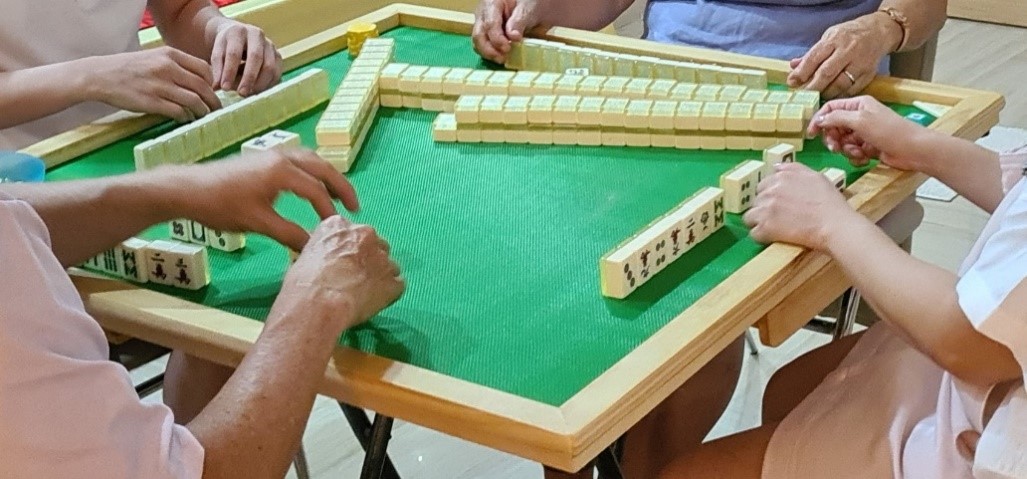
Game of Mahjong
Besides the half-fried half-steam promfet fish, dad’s specialty was the “ma han har”, a prawn dish cooked with finely chopped black beans, spring onion, ginger, garlic and fresh chilies with a dash of oyster sauce and sugar; which he introduced as a new “hoi lin” dish in the last few years of his life. While dad did not invent this dish, he would usually try to produce the same taste of the dishes that he had tasted when he ate out with his mahjong friends. Curious to know how this dish was prepared, dad showed me once while he was cooking it.
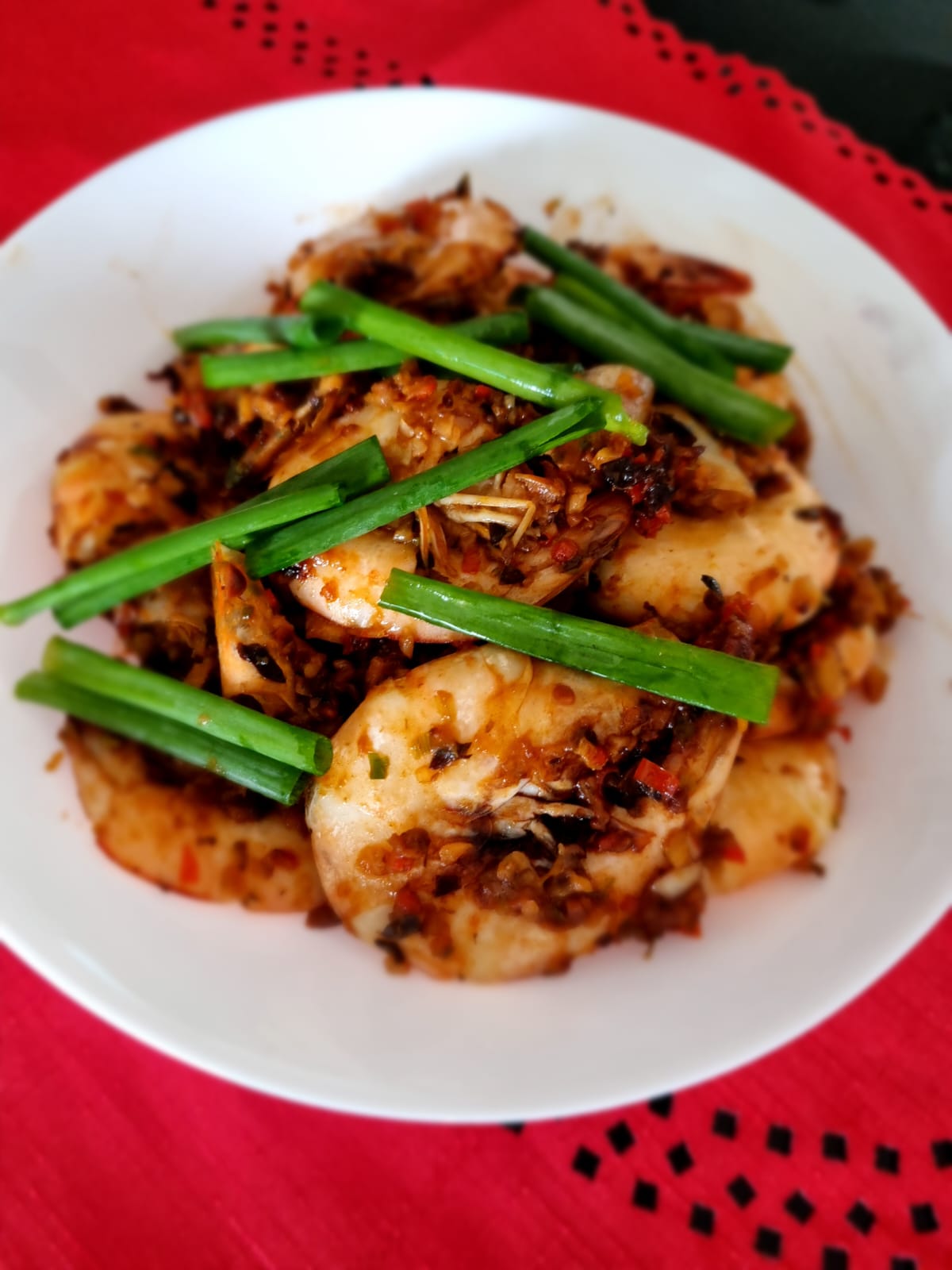
Ma han har
Several weeks before the Lunar New Year, dad would check out the market for the largest prawns that he could get hold of and ensure that everyone had a piece; except for himself. It was awkward when we noticed there was a shortage of one prawn during the meal. Dad would quickly announce that he would be taking the prawn’s head which he claimed my younger sister does not like. The prawns were certainly expensive, but I don’t recall we were that poor since most of us were already working and could afford it, but that was dad, he was always prudent and unkind to himself. He would leave the best for the children no matter how hungry or how he loves the dish. He was always satisfied with a bowl of rice to go with the gravy.
Besides the lotus roots soup and half steam half fried promfet, “ma han har” has also made it to my “hoi lin” menu in the last twenty-five years. Many of my helpers had wanted to reproduce this dish on normal days after having tasted it during “hoi lin”. I had never allowed them to do so.
Every “chor yee”, when I wake up early in the morning to prepare the “hoi lin” meal; while manually chopping and mincing the black beans, garlic, ginger, spring onion and fresh chili, I am reminded of how rare and precious those few intimate memories with dad are. “Ma han har” is not just another dish but a simple legacy that he left behind.
A legacy that is only dished up on special occasion in memory of a selfless and loving dad.
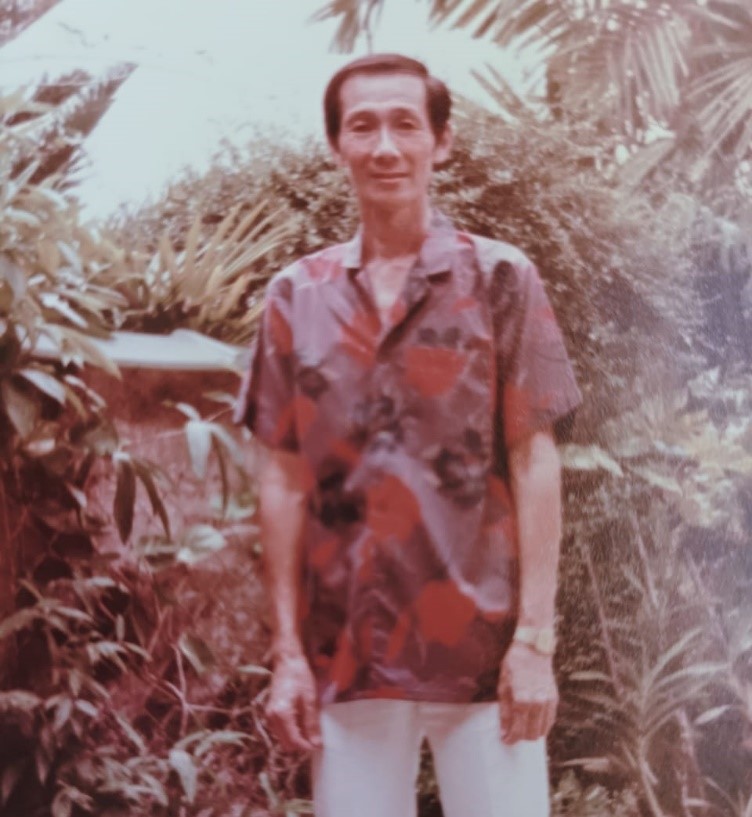
Dad in his 40s
